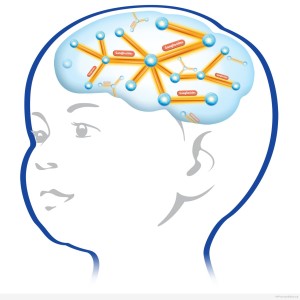 Essential fatty acids (EFA) are structural components of all tissues and are indispensable for cell membrane synthesis; the brain, retina and other neural tissues are particularly rich in long-chain polyunsaturated fatty acids (LCPUFA). Human infants require Omega 6 and 3 fatty acids LCPUFA for growth and neural development. Animals fed diets deficient in the essential fatty acids have low neural LCPUFA and behavioral changes that imply adverse effects on brain function.
Essential fatty acids (EFA) are structural components of all tissues and are indispensable for cell membrane synthesis; the brain, retina and other neural tissues are particularly rich in long-chain polyunsaturated fatty acids (LCPUFA). Human infants require Omega 6 and 3 fatty acids LCPUFA for growth and neural development. Animals fed diets deficient in the essential fatty acids have low neural LCPUFA and behavioral changes that imply adverse effects on brain function.
These EFAs serve as specific precursors for eicosanoids that regulate several cell and organ functions. Some reports showed that the Omega 6 and 3 fatty acids influence eicosanoid metabolism, gene expression, and intercellular cell-to-cell communication. Linoleic acid (LA) is the major Omega 6 fatty acid, and alpha-linolenic acid (ALA) is the major Omega 3 fatty acid. In the body, LA is metabolized to arachidonic acid (AA), and ALA is metabolized to eicosapentaenoic acid (EPA) and docosahexaenoic acid (DHA). DHA is found in unusually high concentrations in the brain and is selectively accumulated during fetal and infant brain growth.
Studies with nonhuman primates and human newborns indicate that DHA is essential for the normal functional development of the retina and brain, particularly in premature infants. Children of vegetarians tend to be deficient in DHA. Lipids, 1995, 30(4):365-369; European Journal of Clinical Nutrition, 1994, 48:358-68; Journal of Pediatrics, 1992, 120:S71-77. Results from animal and recent human studies support the essential nature of Omega 3 fatty acids for human subjects, particularly in early life. The most significant effects relate to neural development and maturation of sensory systems.
The PUFA composition of cell membranes is, to a great extent, dependent on dietary intake. Even preterm infants are able to form AA and DHA, but that synthesis is extremely low. Attention Deficit/Hyperactivity Disorder (ADHD) is the most common behavioral disorder in children. Nutrient deficiencies are common in ADHD. Supplementation with Omega 6 and 3 fatty acids, and minerals, the B vitamins, flavonoids and the essential phospholipid phosphatidylserine (PS) can ameliorate ADHD symptoms.
Comprehensive clinical studies have also shown that dietary supplementation with marine oil or single cell oils, sources of LCPUFA, results in increased blood levels of DHA and AA, as well as an associated improvement in visual function in formulafed premature infants to match that of human milk-fed infant. A number of findings have indicated that the administration of a diet deficient in essential fatty acids during development causes hypomyeIination in the rat brain. Therefore, appropriate amounts of dietary Omega 6 and 3 fatty acids need to be considered in making dietary recommendations.
Mike Maunu – Founder
Oxygen4Life.com
